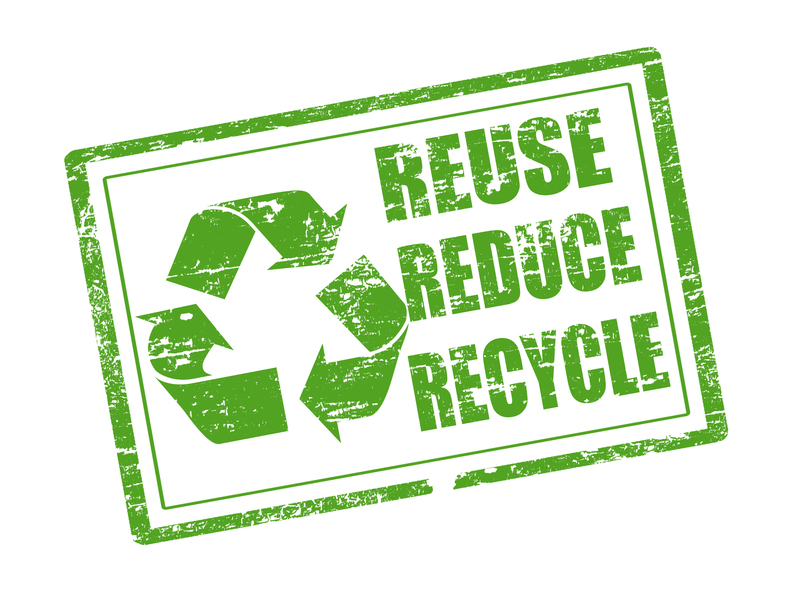Recycling Metals: Key Benefits
Posted on 28/01/2025
Recycling metals has emerged as a crucial practice in the context of sustainable development and environmental conservation. Metals, being finite resources, demand responsible utilization to ensure their availability for future generations. From reducing environmental impact to economic benefits, the importance of recycling metals cannot be overstated. This article delves into the key benefits of recycling metals.
Environmental Benefits
One of the most compelling reasons to recycle metals is the significant positive impact on the environment. Extracting and processing raw metals consumes vast amounts of energy and resources, and it often involves destructive practices such as mining. Recycling metals, in contrast, typically requires far less energy and reduces the need for new raw materials.
For example, recycling aluminum saves up to 95% of the energy needed to produce it from bauxite ore. Similarly, recycling steel saves about 60-74% of the energy compared to making it from iron ore. Reduced energy consumption translates directly into lower greenhouse gas emissions, helping to combat climate change.
Moreover, recycling metals helps reduce pollution. Mining and processing metals release pollutants into the air, water, and soil, posing risks to ecosystems and human health. By recycling, we mitigate these environmental hazards and contribute to cleaner, healthier surroundings.

Conservation of Natural Resources
Natural resources are finite, and the extraction process is often harmful to the environment. Recycling metals plays a critical role in conserving these valuable resources. Instead of constantly extracting new ores from the earth, recycling allows us to reuse the metals we already have, extending the lifespan of natural reserves.
For instance, the world's supply of certain metals like copper and zinc is limited. By recycling these materials, we can preserve the remaining natural deposits for future use. This is particularly important for rare and precious metals, which are used in various high-tech applications. Recycling ensures that these materials remain available for innovation and technological advancements.
Economic Benefits
Recycling metals is not only environmentally responsible but also economically advantageous. The recycling industry generates significant economic activity, ranging from collection and processing to manufacturing and resale. This industry supports jobs and stimulates local economies.
Recycling metals can be more cost-effective than mining and refining new raw materials. The reduced energy requirements lower production costs, and the materials recovered from recycling can be sold at competitive prices. This cost efficiency benefits manufacturers and consumers alike, potentially lowering the prices of goods and services.
Moreover, recycling creates diverse job opportunities. Workers are needed at every stage of the recycling process, from collection and sorting to transportation and processing. This job creation helps stimulate economic growth and supports communities.
Reduction of Landfill Waste
Landfills are rapidly filling up, posing significant environmental and health challenges. Discarded metals contribute to this growing problem. Recycling metals helps divert them from landfills, reducing the overall volume of waste. This extends the life of existing landfill sites and decreases the need to develop new ones, preserving land for other, more sustainable uses.
Metals in landfills can take hundreds to thousands of years to break down, and their degradation process can release harmful substances into the environment. Recycling prevents these adverse effects by repurposing metals instead of allowing them to sit in landfills.
Energy Savings
One of the most powerful arguments for recycling metals is the substantial energy savings it offers. Producing metals from virgin ore requires a massive energy investment, involving mining, transportation, and processing. In contrast, recycling metals bypasses many of these energy-intensive stages.
The energy savings can be dramatic. As previously mentioned, recycling aluminum saves up to 95% of the energy compared to producing new aluminum from bauxite ore. These energy savings translate into reduced fuel consumption and lower carbon emissions, contributing to a cleaner, more sustainable energy landscape.

Promotes Sustainable Development
Recycling metals is a cornerstone of sustainable development, aligning with the principles of reducing, reusing, and recycling. It fosters a circular economy, where materials are continuously reused, reducing the need for new resources and minimizing waste.
Sustainable development requires a balance between economic growth, environmental protection, and social equity. Recycling metals supports this balance by conserving resources, reducing environmental impact, and creating economic opportunities. By incorporating recycling into industrial practices, we can move closer to achieving sustainability goals.
Challenges and Future Directions
While the benefits of recycling metals are clear, the industry does face challenges. Contamination, inefficient collection systems, and the variability of scrap metal quality can hinder recycling efforts. Addressing these challenges requires investment in advanced recycling technologies and the implementation of more efficient collection and sorting systems.
Governments, businesses, and individuals all have roles to play in promoting metal recycling. Policymakers can enact regulations and incentives to encourage recycling, businesses can innovate to improve recycling practices, and consumers can participate by properly disposing of metal waste and supporting products made from recycled materials.
Looking to the future, advancements in technology hold promise for improving metal recycling processes. Innovations such as automated sorting systems, enhanced metallurgical techniques, and sustainable product design can increase recycling rates and efficiency. Continued research and development in this field are essential for overcoming current challenges and maximizing the benefits of metal recycling.
In conclusion, the key benefits of recycling metals are multifaceted. They include significant environmental advantages, conservation of natural resources, economic benefits, reduction of landfill waste, and substantial energy savings. Moreover, recycling metals promotes sustainable development and helps address global challenges such as climate change. While challenges remain, the future of metal recycling looks promising with continued innovation and collaborative efforts.
Latest Posts
Planet-Friendly Disposal Strategies
House Waste Removal Made Easy: Top 5 Tools
Hard Rubbish: Identification & Disposal Tips





